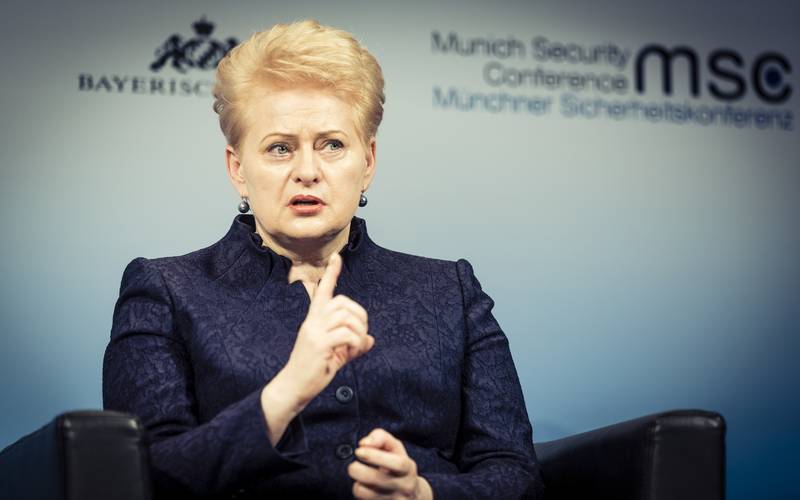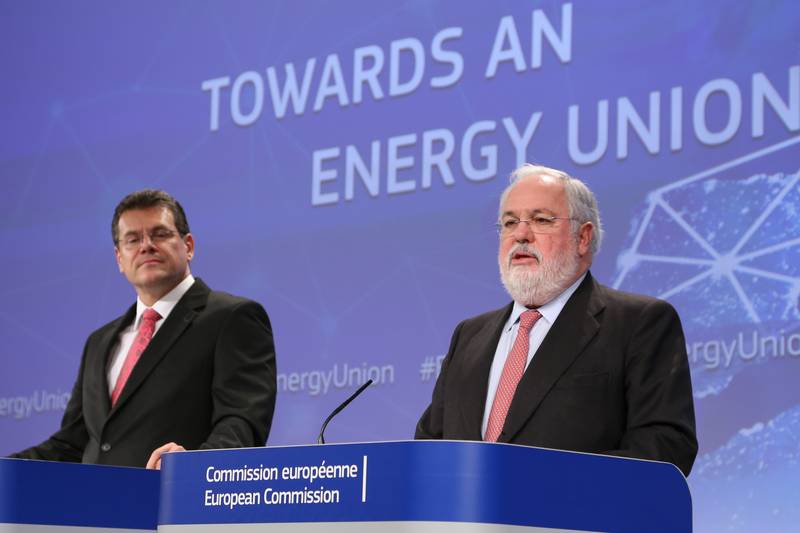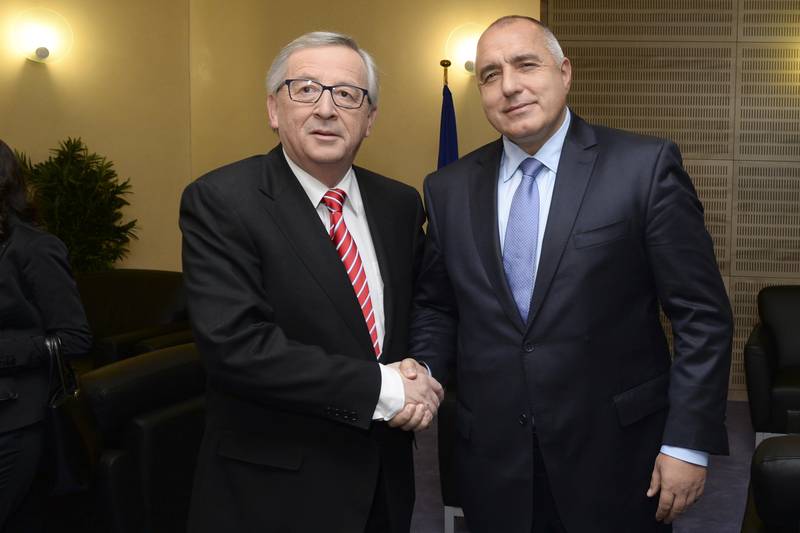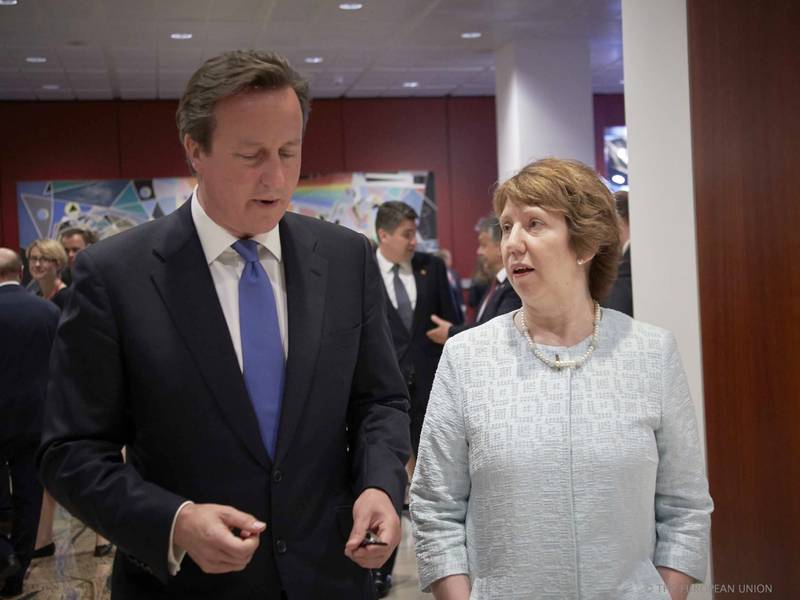Dalia Grybauskaitė: Energy Is Not Economy, It's Geopolitics!
Adelina Marini, February 19, 2017

Who says there is a lack of leaders in the EU? The president of little Lithuania proves the exact opposite. Dalia Grybauskaitė is well known at the European scene. She was the first Lithuanian European commissioner and besides was in charge of a very important portfolio in the first commission of Portuguese José Manuel Barroso (EPP) – Financial Programming and the Budget. This is the portfolio that prepares the EU’s common budget. Even back then her strength of character and adherence to principles became famous throughout the EU. After her term in office expired in 2009, Dalia Grybauskaitė ran for president of Lithuania, which is a semi-presidential republic. Winning the elections, Dalia Grybauskaitė became the first woman president of Lithuania. She won the elections, running as an independent candidate, despite her past as a member of the former Communist Party prior to Lithuania separating from the USSR.
In her very first term in office she turned into a strong critic of Russian President Vladimir Putin – perhaps the only one in the entire EU of 28 members. During her second term she only hardened her position about this. Despite being the president of a little Baltic state, Dalia Grybauskaitė quickly gained the name of an “iron lady” in major international media. In their last year’s ranking of the most influential women the Forbes magazine placed her at the 72-nd position. The ranking was headed by German Chancellor Angela Merkel. Dalia Grybauskaite is among the few EU politicians, who stop to talk to foreign journalists as well, before and after summits, and patiently answers many questions. Due to her sharp positions against the regime of Vladimir Putin, she is everyone’s favourite interlocutor on issues, linked to the Russian foreign and energy policy.
She is often invited to the largest international fora, at which global politics is being discussed, as well as the future of the EU. Dalia Grybauskaitė was a panel member during this year’s Munich security conference in a discussion dedicated on the future of the EU. Being the president of a country, which survived a not less painful economic adjustment than the Greek one in the beginning of its transition from a communist planned to a market economy and democracy, Dalia Grybauskaitė often talks (also here, and here) with self-confidence about what is necessary for the EU to succeed. She speaks confidently about energy issues as well, with Lithuania taking some serious steps in the last four years towards its independence from the Russian energy domination.
This was also the focus of her speech in Munich on Friday (February 17). We offer you a quote of one of her statements during the panel discussion, in the presence of German Minister of Finance Wolfgang Schäuble, European Commission First Vice-President Frans Timmermans, Polish Foreign Minister Witold Waszczykowski, as well as heads of state, MEPs, members of national parliaments, experts, and journalists in the audience.
"From our experience, experience of having one monopoly supplier - Russia - for long years it is clear that energy has never been economy, it's always geopolitics and, predominantly, politics. And predominantly used as a tool of political dominance - that's how Russia has always behaved. And in EU our main goal has always been to diversify and to secure the supply from different sources. And today we have a LNG terminal and we practically don’t need Gazprom at all ,while even 2 years ago we have been paying 30% for gas more than Germany was paying only because we were dependent on Russia and dependent not only on price. We were dependent also that this energy money was used also to corrupt our political system and to influence our political life. So, I want to emphasise, not everything is money, not everything even in EU's economy is about economy. In a lot of cases, especially when we deal with external unfriendly behaviour of some third countries, it is about geopolitics and politics finally.
And recently we all see how our political lives, even elections, are already starting to be influenced by some neighbour with aggressive investments in some extreme political parties, directly funding their activities. We are very much critical about Nord Stream II and we are critical about position that somebody tries to get off the sensitive questions saying that its only a commercial project. No, neither Nord Stream I nor Nord Stream II have ever been and they will be no economic and commercial projects only. It is about politics and influence. Especially that we're trying to pretend that we are creating an energy union in the EU, that we are thinking about the reforms, that we are thinking about support to each other, that we are making interconnections - still we are making huge, huge mistakes. And still we do not have an energy union, while it is important and for that we don’t need treaty change. We don’t even need to adopt new laws for that. The only thing needed  is understanding what energy really means for our economies and for our political stability in Europe".
is understanding what energy really means for our economies and for our political stability in Europe".
In 2013, still at the peak of the severe economic and financial crisis in the EU, in spring, the first taxation-energy European Council was called, the aim of which was to see what could be reformed in those two key areas, so as to compensate for the short money supply. Back then the European Commission presented a report in which it demonstrated the real energy dependence on Russia. The Baltic States, among other Eastern-European member states, had the highest prices for buying natural gas from Russia. Four years later the situation has changed drastically. In the second report on the state of the energy union, which EC Vice-President Maroš Šefčovič (Slovakia, Socialists and Democrats) presented on February 1st to the European Parliament, clearly shows that Lithuania did not just sit and do nothing.
The report acknowledges a drop in the net dependency on import between the years 2005 and 2014 in 22 states, Lithuania among them. Wholesale prices have dropped in all member states in the 2013-2015 period due to low demand, oversupply, low oil prices, and increase in the import of liquefied gas. In the case of Lithuania, it was exactly the building of the LNG terminal in Klaipėda, which contributed the most to the drop in import prices.
In Munich the Lithuanian president firmly stated that no outside forces are to blame for the people’s discontent, but rather local politicians. “And national politicians need to take responsibility in their own hands and not to blame anybody. It’s our responsibility that our people don’t trust governments, don’t trust reforms and see only promises and failed deeds”, were the words of the Lithuanian president at this year’s security conference in Munich. The words of a leader, which are quite welcome in a moment when other leaders are busy just laying the blame for their own inability to take responsibility for their own promises on independent state institutions, the media, or someone else.
Translated by Stanimir Stoev
 Maros Sefcovic, Miguel Arias Canete | © European Commission
Maros Sefcovic, Miguel Arias Canete | © European Commission Jean-Claude Juncker, Boyko Borissov | © European Commission
Jean-Claude Juncker, Boyko Borissov | © European Commission David Cameron, Catherine Ashton | © Council of the EU
David Cameron, Catherine Ashton | © Council of the EU